
Travel Vaccines and Advice for Namibia

Namibia’s sprawling, untouched landscapes teem with countless types of wildlife and animals. If anyone is looking to experience nature in truest form, then they don’t need to look much further than Namibia.
Etosha National Park is a popular destination in Namibia offering the chance to see and interact with wildlife. If travellers wish to see the city life instead, then they can head to Windhoek, the capital of Namibia. In the many buildings in this bustling city, traces of the colonial era are still evident through the architecture.
The variety in attractions and lifestyles makes Namibia the perfect destination for the tourist that wants to get the best of both wild- and city life in Africa.
Do I Need Vaccines for Namibia?
Yes, some vaccines are recommended or required for Namibia. The PHAC and WHO recommend the following vaccinations for Namibia: COVID-19 , hepatitis A , hepatitis B , typhoid , yellow fever , rabies , meningitis , polio , measles, mumps and rubella (MMR) , Tdap (tetanus, diphtheria and pertussis) , chickenpox , shingles , pneumonia and influenza .
See the bullets below to learn more about some of these key immunizations:
- COVID-19 – Airborne – Recommended for all travellers
- Hepatitis A – Food & Water – Recommended for most travellers
- Hepatitis B – Blood & Body Fluids – Accelerated schedule available
- Typhoid – Food & Water – Shot lasts 2 years. Oral vaccine lasts 5 years, must be able to swallow pills. Oral doses must be kept in refrigerator.
- Yellow Fever – Mosquito – Required if travelling from a country with risk of yellow fever transmission.
- Rabies – Saliva of Infected Animals – Moderate risk country. Vaccine recommended for certain travellers based on destination, activities and length of stay.
- Measles Mumps Rubella (MMR) – Various Vectors – Given to anyone unvaccinated and/or born after 1957. One time adult booster recommended.
- TDAP (Tetanus, Diphtheria & Pertussis) – Wounds & Airborne – Only one adult booster of pertussis required.
- Chickenpox – Direct Contact & Airborne – Given to those unvaccinated that did not have chickenpox.
- Shingles – Direct Contact – Vaccine can still be given if you have had shingles.
- Pneumonia – Airborne – Two vaccines given separately. All 65+ or immunocompromised should receive both.
- Influenza – Airborne – Vaccine components change annually.
- Meningitis – Airborne & Direct Contact – Given to anyone unvaccinated or at an increased risk, especially students.
- Polio – Food & Water – Considered a routine vaccination for most travel itineraries. Single adult booster recommended.
See the tables below for more information:
Malaria , dengue and chikungunya are all present in Namibia. Take measure to protect yourself including using mosquito netting, insect repellents and taking antimalarials (if recommended for your itinerary).
African sleeping sickness has been found in Namibia. Though no cases have been reported in nearly a decade, there is still a risk. Use insect repellents and try to avoid tsetse flies when in regions where the insect is present.
See our vaccinations page to learn more about these infections and vaccines. Ready to protect yourself? Book your travel health appointment today by calling or schedule online now .
Do I Need a Visa or Passport for Namibia?
Canadians planning to visit Namibia will need a visa to enter the country. You will also need a valid passport that will remain valid for at least six months beyond your date of departure.
Sources: Embassy of Namibia and Canadian Travel and Tourism
Travellers to Namibia must show proof of vaccination at entry or they will not be allowed into the country.
Visit the Canadian Travel and Tourism website for more information on entry and exit requirements.
What is the Climate Like in Namibia?
Namibia is one of the sunniest countries on the planet. The nation experiences about 300 days of sun each year. Humidity is often low, but the air can be quite dry. This sun and warmth is typical of most regions in Namibia, but the climate can differ slightly across the country. Here is what to expect in a few tourist destinations:
- Windhoek – In the capital city, the temperatures are more moderate. The typical high in January, the peak summer month in Namibia, is about 32, and the average low is 16 degrees Celsius. The temperatures in the winter months, July and June, are a bit cooler. There is usually no rainfall between June and September.
- Swakopmund – The coastal city of Swakopmund has a milder desert climate. The weather is more consistent and varies less than in areas such as Windhoek. The average temperatures in Swakopmund range from about 16 to 27. Rainfall is also light in this region.
- Etosha Pan – This region is a popular tourist destination, as it provides the opportunity for many ecotours and wildlife adventures. Again, rainfall in the Etosha region is as rare as it is in other areas in Namibia. In the summer, temperatures can hit around 35 degrees Celsius, and can go as low as 16. The dry winters range are more mild.
How Safe is Namibia?
There are varying levels and types of criminal activity in Namibia.
Banditry is prevalent along the Namibia-Angola border. Make sure you only pass through official border crossing areas and travel during the day. There are police checkpoints 9 mile outside of all major cities and highways. Keep all travel and identification materials with you at all times.
Crimes of opportunity often occur in Namibia. The most prevalent incidents reported include ATM card skimming, purse snatching and pick-pocketing. More violent crimes, like rape and murder, have increased in the capital of Windhoek. Residential break-ins also occur.
To avoid risk of these crimes, dress conservatively, do not flaunt valuables and avoid walking alone and at night.
Adventuring With Animals in Namibia
Many tourists flock to Namibia to experience untouched, wild landscapes and animals. Ecotours are very popular among travellers. Hiking, swimming, camping and driving through the wilderness are also choice adventures.
Encounters with wildlife can be dangerous, as animals can be unpredictable. Remember that the creatures you may meet are not domesticated, and are not guaranteed to be friendly. This fact remains true no matter how small or cute a creature may be. Many tourists want to touch or feed animals. But, this can provoke them and lead to potentially violent attacks.
Always bring enough water and supplies on every adventure you partake in.
What Should I Pack for Namibia?
In addition to all travel documents and medications recommended by a Passport Health Travel Medicine Specialist, here are some items to consider packing:
- Insect Repellent – Since malaria is at risk in Namibia, be sure to pack bug spray. Packing a repellent with at least 20%-30% DEET will keep mosquitoes at bay. You should also bring neutral colored clothing, as this does not attract insects as much as dark or bright clothes.
- Water Purifier – Not all running and tap water in Namibia is clean or filtered. Avoid drinking it or even brushing your teeth in it. A water purifier will make finding and drinking clean water easier.
- Warm Clothing – Depending on the time of year and region temperatures can be cold. The evenings also tend to cool down, meaning you may need to add some layers if you’re planning to go out after sundown. Packing a few jackets and warm pants will make sure that you are covered.
- Batteries – It can be difficult to find batteries in Namibia. If you have any devices that rely on batteries, such as cameras, it may be wise to pack some extras. In a country this naturally beautiful, you wouldn’t want to miss any chance to take a quick snapshot.
Canadian Embassy in Namibia
Canadian consular services can help travellers with many issues they may face including passport services. Namibia is served by the High Commission of Canada in South Africa:
High Commission of Canada in South Africa 1103 Arcadia Street Hatfield, Pretoria, 0083, South Africa Telephone: +27 12 422 3000
Ready to start your next journey? Call us at or book online now !
Customer Reviews
Passport health – travel vaccines for namibia.
On This Page: Do I Need Vaccines for Namibia? Do I Need a Visa or Passport for Namibia? What is the Climate Like in Namibia? How Safe is Namibia? Adventuring With Animals in Namibia What Should I Pack To Namibia? Canadian Embassy in Namibia

- PIPEDA Policy and Consent Form
- Privacy Policy
- Automatic Data Collection Statement
You are using an outdated browser. Upgrade your browser today or install Google Chrome Frame to better experience this site.
Find a Clinic
There are several places you can get vaccines and medicine before you travel.
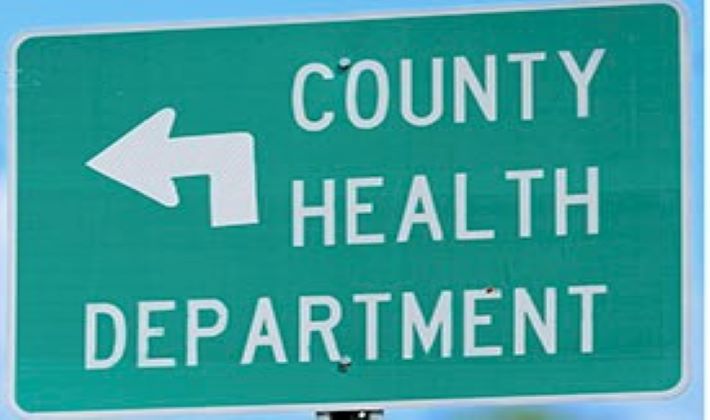
Call your doctor or local health department to see if they can provide pre-travel advice, vaccines, and medicines.
List of health departments
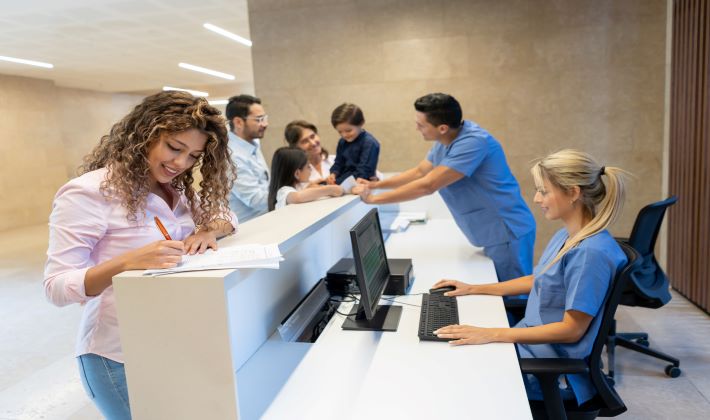
If you want to see a travel medicine specialist, the International Society of Travel Medicine (ISTM) can help you find a clinic.
Directory of travel clinics
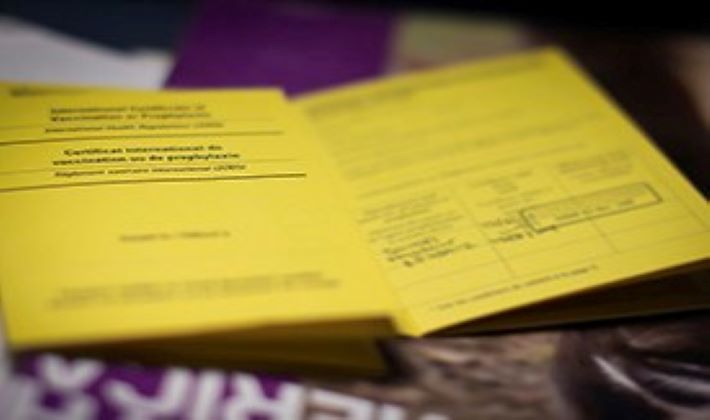
If you need yellow fever vaccine you must get vaccinated at an authorized yellow fever vaccine clinic. Many of these clinics also give other shots and medicines.
Yellow fever vaccine clinic search
Find where you can get a COVID-19 vaccine in your area.
Need to get tested? Find a COVID-19 testing clinic .
- Find out what vaccines you need for your destination
- Frequently Asked Questions
- Traveler Advice
- Clinician Tools and Resources
CDC provides these links as a convenience to international travelers. CDC does not endorse, recommend, or favor any clinics on these lists, nor does the appearance of a clinic on these lists imply a guarantee of service quality.
File Formats Help:
- Adobe PDF file
- Microsoft PowerPoint file
- Microsoft Word file
- Microsoft Excel file
- Audio/Video file
- Apple Quicktime file
- RealPlayer file
- Zip Archive file
Exit Notification / Disclaimer Policy
- The Centers for Disease Control and Prevention (CDC) cannot attest to the accuracy of a non-federal website.
- Linking to a non-federal website does not constitute an endorsement by CDC or any of its employees of the sponsors or the information and products presented on the website.
- You will be subject to the destination website's privacy policy when you follow the link.
- CDC is not responsible for Section 508 compliance (accessibility) on other federal or private website.

Search Smartraveller

Latest update
Exercise normal safety precautions.
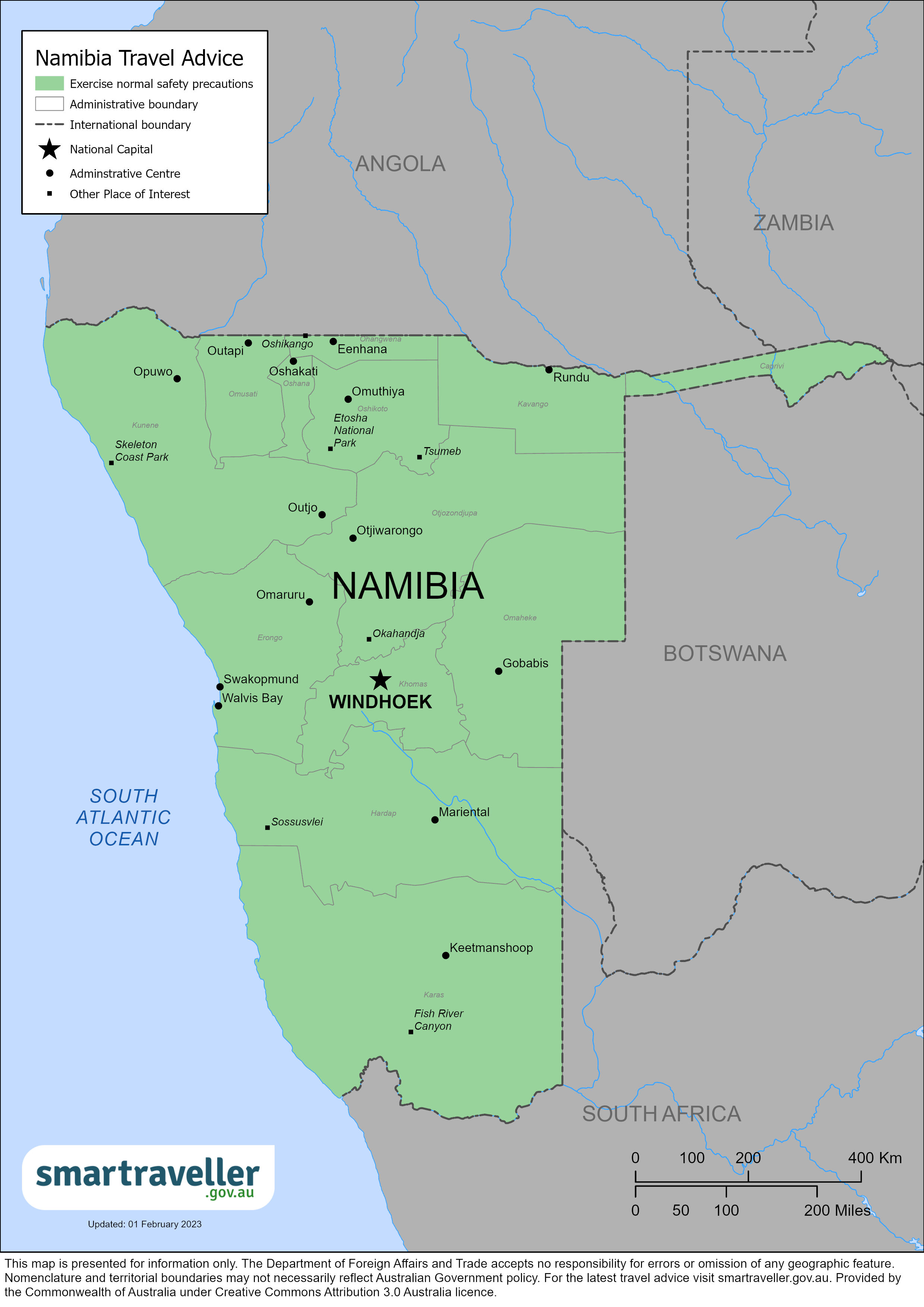
Namibia (PDF 756.88 KB)
Africa (PDF 1.68 MB)
Local emergency contacts
Fire and rescue services.
Call 112 from a mobile.
Call 61 211 111 from a landline.
Medical emergencies
Go to the nearest hospital.
Visit the nearest police station or a Tourist Protection Unit.
- Windhoek Main Police Station, phone: 61 209 4345
- Swakopmund, phone: 64 405 558
Advice levels
Exercise normal safety precautions in Namibia.
- Petty crime is common, including in urban centres. This includes pickpocketing, bag-snatching and car break-ins. Don’t leave valuables in your car. Always keep vehicle doors locked and windows up, even when moving.
- Violent crime includes muggings and robberies. Tourists have been robbed after stopping for hitchhikers or to help people. Avoid walking alone in large towns, particularly at night. Don’t pick up strangers.
- Taxi drivers have robbed travellers. Don’t hail unmarked taxis on the street. Use taxis with the Namibia Bus and Taxi Association logo. Book taxis through your hotel or a taxi company.
- Credit card skimming occurs. Always keep your card in sight. Check your statements often for fraudulent transactions.
- Flooding may happen in the rainy season from November to April. Floods can block roads. Follow local advice.
Full travel advice: Safety
- Anyone over 9 months old and travelling from a country where yellow fever is widespread must present a yellow fever vaccination certificate on arrival. Get vaccinated before you travel.
- The rate of HIV/AIDS infection is high. Take precautions if you engage in high-risk activities.
- Malaria is common in northern Namibia. Consider taking anti-malarial medication if you’re travelling to this area. Other insect-borne diseases include leishmaniasis. Use insect repellent and ensure your accommodation is insect-proof.
- Waterborne, foodborne, parasitic and other infectious diseases are common. They include typhoid, hepatitis and meningitis. Drink only boiled or bottled water. Avoid raw or undercooked food.
- Medical facilities are limited outside major urban centres. If you're seriously ill or injured, you'll need evacuation, probably to South Africa. Ensure your travel insurance covers this. Medical evacuation is expensive and hard to organise.
Full travel advice: Health
- Don't use or carry illegal drugs. Penalties for drug offences are severe. They include long prison sentences.
- Ask permission before taking photos. It's illegal to take photos of government and military sites.
- Trading endangered wildlife products like ivory and rhino horn is illegal.
- Trading diamonds and precious stones is illegal. Only buy from licensed shops.
- Same-sex relationships are legal in Namibia, but they aren't widely accepted.
Full travel advice: Local laws
- To enter Namibia, you don't need a visa if you're a tourist for up to 3 months. For other travel purposes, you'll need a visa in advance. Entry and exit conditions can change at short notice. You should contact the nearest high commission or consulate of Namibia for the latest details.
- You'll need one blank page in your passport to enter Namibia. If travelling from Namibia to South Africa, you'll need an additional two blank pages.
- If you're travelling with children, you must carry a full birth certificate and in certain circumstances an affidavit. Check the rules and requirements with the nearest Namibian Embassy, High Commission or Consulate .
- Carry your yellow fever vaccination certificate if you're coming from a country where there’s a risk of yellow fever. You’ll need it to enter Namibia.
- The official currency is the Namibian Dollar (NAD). You can also use South African rand (ZAR). You can use credit cards in major centres. ATMs are available in cities, but not always in remote areas.
- Unexploded landmines are a danger in some parts of Namibia. These include parts of the East and West Kavango Regions and Zambezi Region in the north-east, and areas near the Angolan border. Follow the advice of local authorities.
Full travel advice: Travel
Local contacts
- The Consular Services Charter details what we can and can't do to help you overseas.
- Australia has a consulate in Namibia that provides limited consular and passport services.
- For full consular assistance, contact the Australian High Commission in South Africa .
- To stay up to date with local information, follow the High Commission’s social media accounts.
Full travel advice: Local contacts
Full advice
Petty crime.
Petty crime is common, and also occurs in urban centres. This can include:
- pickpocketing
- bag-snatching
- theft from motor vehicles
Mobile phones are particularly targeted by pickpockets.
Criminals use distraction techniques, such as offering assistance, to steal money and valuables.
Car break-ins are common, especially in major urban centres such as:
Violent crime
Violent crime against foreigners includes muggings and robberies . Windhoek and Swakopmund are hotspots. The use of diversion tactics to distract possible victims is common.
Tourists have been robbed after stopping for hitchhikers or to help people.
Crime increases at night.
To protect yourself from crime:
- avoid walking alone in large towns, particularly at night
- keep car windows up and doors locked, even when moving
- don't leave valuables in your car
- don't pick up strangers
- be alert at ATMs and at fuel stations.
HIV/AIDS is common in Namibia. If you're a victim/survivor of violent crime, including sexual assault , seek immediate medical assistance.
Taxi safety
Taxi drivers have robbed travellers.
Risks are highest with unmarked taxis and those hailed on the street.
Use taxis with the Namibia Bus and Taxi Association logo or organised through your hotel or a taxi company.
Don't hail unmarked taxis on the street.
Credit card fraud
Credit card skimming has been reported.
Don't let your credit card out of your sight.
Check your statements often for fraudulent payments.
Cyber Security
You may be at risk of cyber-based threats during overseas travel to any country. Digital identity theft is a growing concern. Your devices and personal data can be compromised, especially if you’re connecting to Wi-Fi, using or connecting to shared or public computers, or to Bluetooth.
Social media can also be risky in destinations where there are social or political tensions, or laws that may seem unreasonable by Australian standards. Travellers have been arrested for things they have said on social media. Don't comment on local or political events on your social media.
More information:
Cyber security when travelling overseas
Civil unrest and political tension
Demonstrations and protests.
Public protests and demonstrations can turn violent.
To protect yourself during periods of unrest:
- monitor the news for planned or possible unrest
- avoid affected areas
- follow the advice of local authorities
More information:
- Demonstrations and civil unrest
Terrorism is a threat worldwide.
Tours and adventure activities
Transport and tour operators don't always follow recommended safety or maintenance standards.
If you plan to do an adventure activity :
- check if your travel insurance policy covers it
- check operators' credentials and safety equipment before booking
- use reputable, registered tour operators
- ask about and insist on minimum safety requirements
- always use available safety gear, such as life jackets or seatbelts
If proper safety equipment isn't available, use another provider.
Climate and natural disasters
Flooding may occur in the rainy season from November to April.
Roads can become blocked.
To protect yourself if a natural disaster or severe weather occurs:
- secure your passport in a safe, waterproof location
- monitor local media and other sources
- consider moving to higher ground
- keep in contact with friends and family
- Global Disaster Alert and Coordination System
Travel insurance
Get comprehensive travel insurance before you leave.
Your policy needs to cover all overseas medical costs, including medical evacuation. The Australian Government won't pay for these costs.
If you can't afford travel insurance, you can't afford to travel. This applies to everyone, no matter how healthy and fit you are.
If you're not insured, you may have to pay many thousands of dollars up-front for medical care.
Some Namibian medical and emergency facilities don't recognise all travel insurance policies. Ask your insurer if their product is recognised in Namibia before you buy it.
Carry a copy of the policy and your insurer's emergency phone number.
Physical and mental health
Consider your physical and mental health before you travel, especially if you have an existing medical condition.
See your doctor or travel clinic to:
- have a basic health check-up
- ask if your travel plans may affect your health
- plan any vaccinations you need
Do this at least 8 weeks before you leave.
If you have immediate concerns for your welfare, or the welfare of another Australian, call the 24-hour Consular Emergency Centre on +61 2 6261 3305 or contact your nearest Australian Embassy, High Commission or Consulate to discuss counselling hotlines and services available in your location.
- General health advice
- Healthy holiday tips (Healthdirect Australia)
Medications
Not all medication available over the counter or by prescription in Australia is available in other countries. Some may even be considered illegal or a controlled substance, even if prescribed by an Australian doctor.
If you plan to bring medication, check if it's legal in Namibia. Take enough legal medicine for your trip.
Carry a copy of your prescription or a letter from your doctor stating:
- what the medication is
- your required dosage
- that it's for personal use
Health risks
The rate of HIV/AIDS infection in Namibia is high.
Take precautions if you engage in activities that expose you to a risk of infection.
Insect-borne diseases
If you're travelling from a country where yellow fever is widespread, you'll need a valid yellow fever certificate to enter Namibia. This does not apply to a child aged under 9 months. If you can't show proof of vaccination, authorities may not let you enter Namibia. You can't get vaccinated on arrival.
Malaria is common in northern Namibia.
Other insect-borne diseases include:
- leishmaniasis
To protect yourself from disease:
- make sure your accommodation is insect-proof
- use insect repellent
- wear long, loose, light-coloured clothing
- consider taking medicine to prevent malaria
Seek medical advice if you have a fever, muscle pain, rash or severe headache.
Other health risks
Waterborne, foodborne, parasitic and other infectious diseases are common. These include:
- tuberculosis
Serious outbreaks sometimes occur.
To protect yourself from illness:
- drink boiled water or bottled water with sealed lids
- avoid ice cubes
- avoid raw and undercooked food, such as salads
- don't swim in fresh water
- always check with local authorities before swimming in waters
- avoid contact with dogs and other mammals
If you're bitten or scratched by an animal, seek medical help straight away.
Get medical advice if you have a fever or diarrhoea.
Medical care
Medical facilities.
Medical facilities are limited outside major urban centres.
Private hospitals in major urban centres are better equipped.
You'll need to pay cash before doctors and hospitals will treat you. Your insurer may be able to repay you later if you're covered.
If you become seriously ill or injured, you'll need to be evacuated to South Africa or another place with better facilities. Medical evacuation can be very expensive.
You're subject to all local laws and penalties, including those that may appear harsh by Australian standards. Research local laws before travelling.
If you're arrested or jailed, the Australian Government will do what it can to help you under our Consular Services Charter . But we can't get you out of trouble or out of jail.
If you're detained or arrested, Namibian authorities may not contact the Australian Government straight away.
Ask officials to call the Australian High Commission in South Africa, or the Australian Consulate in Windhoek.
Police resources are varied throughout Namibia.
Penalties for drug offences are severe and include long jail sentences.
- Carrying or using drugs
Other crimes
In Namibia, it's illegal to:
- take photos of government and military sites. Ask local officials if in doubt
- trade in endangered wildlife products such as ivory and rhino horn
Penalties are severe for illegal trading in diamonds and precious stones. Only buy diamonds and precious stones from licensed shops.
- Wildlife trade
Australian laws
Some Australian criminal laws still apply when you're overseas. If you break these laws, you may face prosecution in Australia.
- Staying within the law and respecting customs
Dual citizenship
If you're a dual citizen, this limits the consular services we can give if you're arrested or detained.
- Dual nationals
Local customs
Same-sex relationships are legal in Namibia, but not widely accepted. Public displays of affection may cause offence. Some sexual relations between men are criminalised, but generally not enforced.
- Advice for LGBTI travellers
Visas and border measures
Every country or territory decides who can enter or leave through its borders. For specific information about the evidence you'll need to enter a foreign destination, check with the nearest embassy, consulate or immigration department of the destination you're entering.
Tourists can visit for up to 3 months without a visa.
For other situations, you'll need to get a visa in advance.
Entry and exit conditions can change at short notice. Contact a consulate-general of Namibia or the Ministry of Home Affairs and Immigration for details about visas, currency, customs and quarantine rules.
Make sure the correct visa and entry period is stamped in your passport, even if you're transiting.
Check your visa before leaving the immigration counter.
You may be detained or fined if you don't follow visa or immigration requirements.
Border measures
You need a valid yellow fever vaccination certificate to enter Namibia if you're arriving from a country where yellow fever occurs.
- Countries with a risk of yellow fever
Other formalities
To prevent the spread of Ebola virus disease (EVD) , passengers travelling from EVD-affected countries are screened on arrival.
Travel via South Africa
If you're travelling through South Africa, you must meet South African entry and transit requirements.
- Travel advice for South Africa
Travel with children
If you're travelling with children you must carry:
- a full birth certificate that identifies their parents
- an affidavit from any absent parents giving consent for the child to travel ( unless both parents are accompanying the child )
The affidavit must be less than 3 months old and include:
- the signatures of both parents
- full names, addresses, phone numbers and passport details of the child and both parents (as listed on the birth certificate)
- travel destinations of the parent and children
- a certified copy of any absent parent's passport.
If you don't have valid documents, authorities may deport you or stop you boarding your flight.
Check your documents meet these requirements with the nearest Namibian High Commission, Embassy or Consulate .
To enter Namibia, you'll need one blank page in your passport. If you're travelling from Namibia to South Africa, you'll need another two blank pages.
Some countries won't let you enter unless your passport is valid for 6 months after you plan to leave that country. This can apply even if you're just transiting or stopping over.
Some foreign governments and airlines apply the rule inconsistently. Travellers can receive conflicting advice from different sources.
You can end up stranded if your passport is not valid for more than 6 months.
The Australian Government does not set these rules. Check your passport's expiry date before you travel. If you're not sure it'll be valid for long enough, consider getting a new passport .
Lost or stolen passport
Your passport is a valuable document. It's attractive to people who may try to use your identity to commit crimes.
Some people may try to trick you into giving them your passport. Always keep it in a safe place.
If your passport is lost or stolen, tell the Australian Government as soon as possible:
- In Australia, contact the Australian Passport Information Service .
- If you're overseas, contact the nearest Australian embassy or consulate .
Passport with 'X' gender identifier
Although Australian passports comply with international standards for sex and gender, we can’t guarantee that a passport showing 'X' in the sex field will be accepted for entry or transit by another country. Contact the nearest embassy, high commission or consulate of your destination before you arrive at the border to confirm if authorities will accept passports with 'X' gender markers.
LGBTI travellers
The official currency is the Namibian Dollar (NAD).
You can also use South African rand (ZAR).
Declare amounts more than NAD50,000 when you arrive and leave Namibia. This covers all forms of currency, not only cash.
In major centres, credit cards are accepted and ATMs are available. This may not be the case in remote areas. Ask your bank if your ATM card will work in Namibia.
Local travel
Unexploded landmines and remnants of war are a danger in:
- East and West Kavango
- the Zambezi regions of north-eastern Namibia
- areas bordering Angola
Use main routes in these regions.
Driving permit
To drive in Namibia, you need a valid Australian driver's licence
Though not mandatory you may be requested to show a valid International Driving Permit (IDP)
You must obtain your IDP before leaving Australia.
Road travel
Driving can be dangerous in Namibia.
Hazards include:
- poor local driving practices
- poor street lighting
- poorly maintained vehicles
- pedestrians, wild animals and livestock on roads
Roads between main urban centres are good, but they're usually unsealed in rural areas.
Gravel and sandy roads, flash flooding and water-damaged roads are driving hazards.
Tourists have had accidents because they were driving too fast on unfamiliar roads.
Most vehicle insurance policies only cover accidents involving other vehicles or animals.
Check your insurance policy covers you for accidents on unsealed roads and single-vehicle accidents.
To reduce your risks while driving:
- check local traffic laws and practices
- be aware of animals and pedestrians on roads
- travel with sufficient fuel, water and emergency provisions in desert areas
- Driving or riding
Motorcycles
Check with your travel insurer whether your policy covers you when using a motorbike, quad bike or similar vehicle.
Always wear a helmet.
Use registered taxis, preferably arranged through your hotel.
To protect yourself if you need to take a taxi:
- avoid hailing taxis on the street
- don't share taxis with strangers
- always sit in the back seat
Public transport
Avoid public transport where possible.
Vehicles are often poorly maintained.
Local buses don't follow permanent routes.
DFAT doesn't provide information on the safety of individual commercial airlines or flight paths.
Check Namibia's air safety profile with the Aviation Safety Network.
Emergencies
Depending on what you need, contact your:
- family and friends
- travel agent
- insurance provider
Always get a police report when you report a crime.
Your travel insurer should have a 24-hour emergency number.
Consular contacts
Read the Consular Services Charter for what the Australian Government can and can't do to help you overseas.
Australia has a consulate in Namibia. It provides limited consular and passport services.
You can also get full consular and passport help from the Australian High Commission in South Africa.
Australian Consulate, Windhoek
56 Chalcedoon Street PO Box 86491, Eros Windhoek, Namibia Phone: (+264) 61 300 194 Mobile: (+264) 81 283 4629 Email: [email protected]
Australian High Commission, Pretoria
292 Orient Street Pretoria Republic of South Africa Phone: +27 0 12 423 6000 Fax: +27 0 12 342 8442 Email: [email protected] Website: southafrica.embassy.gov.au Facebook: Australian High Commission in South Africa Twitter: @AuHCSouthAfrica
Check the High Commission website for details about opening hours and any temporary closures.
24-hour Consular Emergency Centre
In a consular emergency, if you can't contact an embassy, call the 24-hour Consular Emergency Centre on:
- +61 2 6261 3305 from overseas
- 1300 555 135 in Australia

Travelling to Namibia?
Sign up to get the latest travel advice updates..
Be the first to know official government advice when travelling.

Service Offerings
Mediclinic Windhoek Hospital
Mediclinic Windhoek is based in the capital of Namibia, offers local and international patients a broad spectrum of professional medical services, including; professional consultations, quality medical care and well-equipped operating theatres staffed by highly trained and professional nursing, medical and other personnel.

Stay & Visit
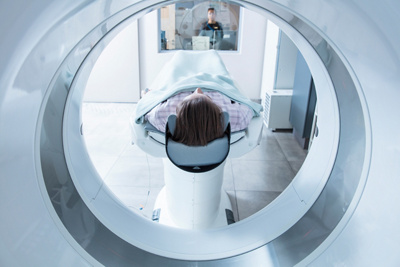
Update April 12, 2024
Information for u.s. citizens in the middle east.
- Travel Advisories |
- Contact Us |
- MyTravelGov |
Find U.S. Embassies & Consulates
Travel.state.gov, congressional liaison, special issuance agency, u.s. passports, international travel, intercountry adoption, international parental child abduction, records and authentications, popular links, travel advisories, mytravelgov, stay connected, legal resources, legal information, info for u.s. law enforcement, replace or certify documents.
Before You Go
Learn About Your Destination
While Abroad
Emergencies
Share this page:
Travel Advisory November 27, 2023
Namibia - level 2: exercise increased caution.
Last Update: Reissued with updates to crime.
Exercise increased caution in Namibia due to crime .
Country Summary : Petty crime, such as pickpocketing, purse snatching, and "smash-and-grab" attacks on vehicles, is increasingly common, and these can violently escalate into robberies and muggings. There is a higher risk of crime in the central business districts of major cities after dark.
Read the country information page for additional information on travel to Namibia.
If you decide to travel to Namibia:
- Avoid walking alone, especially after dark.
- Do not display large amounts of cash or other valuables.
- Keep car doors locked and windows shut at all times.
- Be cautious of people appearing to request assistance by the side of the road.
- Use ATMs located in well-lit public places or inside a bank or other business and be cautious of anyone offering assistance in using the ATM.
- Always carry a copy of your U.S. passport and Namibian visa or entry stamp (if applicable). Keep original documents in a secure location.
- Enroll in the Smart Traveler Enrollment Program ( STEP ) to receive Alerts and make it easier to locate you in an emergency.
- Follow the Department of State on Facebook and X .
- Review the Country Security Report for Namibia.
- Prepare a contingency plan for emergency situations. Review the Traveler’s Checklist
- Visit the CDC page for the latest Travel Health Information related to your travel.
Embassy Messages
View Alerts and Messages Archive
Quick Facts
Not required for stays of 90 days or fewer per calendar year
Yellow fever, if traveling from a yellow fever endemic country
Not applicable
Embassies and Consulates
U.s. embassy windhoek.
14 Lossen Street, Ausspannplatz Windhoek, Namibia Telephone: +(264) (61) 295 8500 Emergency After-Hours Telephone: +(264) (61) 295 8500 Fax: +(264)(61) 295-8603 Email: [email protected]
Destination Description
Learn about the U.S. relationship to countries around the world.
Entry, Exit and Visa Requirements
Requirements for Entry:
- Passports must have at least six months of validity remaining beyond your planned date of departure. At least three completely blank pages are required for entry. If you are traveling with minor children to Namibia, be aware that additional documentation is required.
- Tourists visiting Namibia for fewer than 90 days per calendar year are not required to obtain a visa in advance of their arrival. All other visa types (e.g., student, work, volunteer, etc.) must be obtained from the nearest Namibian embassy or consulate before travel. Visit the Namibian Embassy’s website for the most current visa information.
- Upon arrival, check your admission stamp before leaving the immigration counter to ensure that the stamp is valid for the length of your intended stay (up to 90 days) or transit through Namibia and that immigration officials have given you a correctly dated entry stamp, as this stamp will be checked upon departure. Overstaying the time granted or having an incorrect or missing entry stamp can result in detention, arrest, and fines.
- Travelers to Namibia are not required to produce a negative SARS-CoV-2 PCR test result or proof of vaccination.
- World Health Organization (WHO) card with yellow fever vaccination if traveling from a yellow fever endemic country. Check the CDC Yellow Book for further information.
Parents traveling to Namibia with minor children should be prepared to produce unabridged birth certificates for their children demonstrating their parental relationship. Birth certificates should be original or certified copies of the original. When one parent is traveling alone with a child, he or she should present the unabridged birth certificate, plus a notarized consent from the other parent listed on the birth certificate authorizing him or her to enter/depart from Namibia with the child. Alternatively, the parent could also present a court order granting him or her full legal custody of the child, or the death certificate of the other parent named on the birth certificate.
The U.S. Department of State is unaware of any HIV/AIDS entry restrictions for visitors to, or foreign residents of Namibia. Find information on dual nationality , prevention of international child abduction , and customs regulations on our websites.

Safety and Security
Road Travel: Namibia has thousands of miles of unpaved roads. Road accidents, particularly on gravel roads, pose the most serious threat to visitors. Many gravel roads are well-maintained and can provide unaccustomed drivers a false sense of security, with road conditions shifting dramatically in certain areas. See recommendations below on road safety in Namibia.
Crime: Non-violent crimes of opportunity are the most common incidents reported by foreigners and include pick pocketing, purse snatching, ATM card skimming, and vehicle thefts and break-ins. Criminals sometimes brandish knives and guns. Violent crimes, including murder and rape, and property crimes increased in Windhoek over the last year. Robberies occur at roadside rest stops.
- Dress conservatively.
- Avoid walking alone, especially after dark, and displaying cash and valuable personal property.
- Make sure your hotel room or residence is well secured, including windows.
- Keep your credit card in your sight at all times while it is being processed. Consider using prepaid credit cards with limited funds when traveling.
- Take rest breaks in towns and/or at gasoline stations.
Transport crimes: Violent assaults on taxi passengers are known to occur; petty theft is prevalent and occurs on trains, buses, and in taxis.
- Be aware of criminals using remote key fobs to unlock vehicle doors in parking lots.
- Drive with doors locked and windows closed.
- Keep valuables out of sight and do not use cell phones or laptops while stopped in traffic; bandits may use smash and grab tactics to steal valuables.
- Hire taxis through a hotel or retain the services of a reputable private transport company.
Checkpoints: The police maintain checkpoints approximately 9 miles (15 km) outside of main cities and all major highways. During the holiday season, additional checkpoints may be established along the Windhoek-Swakopmund highway (B1).
- Remain inside your vehicle with doors locked and open the window slightly to communicate.
- Be prepared to produce vehicle registration documents, personal identification (passport, Namibian identification cards), car rental contracts, and/or drivers’ licenses.
- Proceed only when waved through.
International Financial Scams: See the Department of State and the FBI pages for information.
Victims of Crime: U.S. citizen victims of sexual assault are encouraged to contact the U.S. Embassy for assistance. Report crimes to the local police at 112 and contact the U.S. Embassy at + (264) (61) 295-8522.
Tourist Protection Units (TPUs) assist tourists victimized by crime in Windhoek and Swakopmund.
Please contact:
- Tourist Protection Unit – Windhoek (Windhoek Main Police Station) at + (264) (61) 209-4345 or + (264) (81) 615-4401.
- Tourist Protection Unit – Swakopmund at + (264) (64) 415-060.
- The Motor Vehicle Accident Fund at 081 9682 can help with ambulances, police, and rescue services.
Local authorities are responsible for investigating and prosecuting crime.
See our webpage on help for U.S. victims of crime overseas .
We can:
- Help you find appropriate medical care
- Assist you in reporting a crime to the police
- Contact relatives or friends with your written consent
- Explain the local criminal justice process in general terms
- Provide a list of local attorneys
- Provide our information on victim’s compensation programs in the U.S.
- Provide an emergency loan for repatriation to the United States and/or limited medical support in cases of destitution
- Replace a stolen or lost passport
Domestic Violence: U.S. citizen victims of domestic violence are encouraged to contact the Embassy for assistance.
Tourism: The tourism industry is unevenly regulated, and safety inspections for equipment and facilities do not commonly occur. Hazardous areas/activities are not always identified with appropriate signage, and staff may not be trained or certified either by the host government or by recognized authorities in the field. In the event of an injury, appropriate medical treatment is typically available only in/near major cities. First responders are generally unable to access areas outside of major cities and to provide urgent medical treatment. U.S. citizens are encouraged to purchase medical evacuation insurance .
Local Laws & Special Circumstances
Criminal Penalties: You are subject to local laws. If you violate local laws, even unknowingly, you may be expelled, arrested, or imprisoned. Individuals establishing a business or practicing a profession that requires additional permits or licensing should seek information from the competent local authorities, prior to practicing or operating a business.
Furthermore, some laws are also prosecutable in the United States, regardless of local law. For examples, see our website on crimes against minors abroad and the Department of Justice website.
Diamonds: Do not purchase diamonds and other protected resources outside of licensed retail establishments. If you are convicted of illegally dealing in diamonds, you can face up to 20,000 U.S. dollars in fines and/or five years in prison.
Wild animal parts: Unlicensed purchase of or trading in endangered wildlife parts, such as ivory and rhino horn, is illegal and carries severe penalties including fines up to 1.1 million U.S. dollars and 15 years in prison. Furthermore, it is illegal to kill or capture any protected wild animals without appropriate permits.
Arrest Notification: If you are arrested or detained, ask police or prison officials to notify the U.S. Embassy immediately. See our webpage for further information.
Photography: It is illegal to take pictures of government buildings, military installations, and key infrastructure, such as ports, train stations, airports, and along border areas. You could be fined, have your photographic equipment confiscated, and risk detention and arrest. Do not take photos of people without their permission.
Phone Service: Cellular phones are the norm, as landlines are only in urban areas. It is possible to purchase a SIM card locally and use a U.S.-compatible cell phone.
Currency: The Namibian dollar (NAD) is the official currency. It is pegged to the South African rand, which is also legal tender in Namibia. Carefully inspect ATMs for skimming technology before using. Credit cards are generally accepted.
Wild Animal Parks : Heed all instructions given by guides or trackers. Use common sense and maintain a safe distance when approaching wildlife. Even in the most serene settings wild animals pose a lethal threat. Lions, leopards, elephants, oryxes, rhinos, hippos, and crocodiles have critically injured and killed individuals in the region.
Baboons live throughout Namibia and commonly scavenge the belongings of travelers. Baboons in camping areas are quite bold in approaching and taking items that interest them; they can be aggressive. Keep your belongings and food in secure containers.
Counterfeit and Pirated Goods: Although counterfeit and pirated goods are prevalent in many countries, they may still be illegal according to local laws. You may also pay fines or have to give them up if you bring them back to the United States. See the U.S. Department of Justice website for more information.
Adventure activities: Climbing areas, 4X4 trails, hiking trails, and rivers are unpredictable and dangerous. They are often located in isolated areas without access to communications and away from any medical assistance. Dozens of people, including U.S. citizens, have been injured or drowned.
- Leave a copy of your identification, travel documents, and an itinerary with the hotel reception desk when you go on excursions to assist police/rescue teams in the event of a problem.
- Bring sufficient water and supplies, including a satellite phone preprogrammed with emergency numbers.
- Provide a detailed travel plan and return date to family and friends in the United States before your excursion.
Faith-Based Travelers: See our following webpages for details:
- Faith-Based Travel Information
- International Religious Freedom Report – see country reports
- Human Rights Report – see country reports
- Hajj Fact Sheet for Travelers
- Best Practices for Volunteering Abroad
LGBTQI+ Travelers: Homosexuality is not illegal but sodomy between men is criminalized, though the ban is not enforced. Many Namibians consider all same-sex sexual activity taboo.
See our LGBTQI+ Travel Information page and section 6 of our Human Rights report for further details.
Travelers with Disabilities: The law in Namibia prohibits discrimination against persons with physical, sensory, intellectual or mental disabilities, and the law is enforced. Social acceptance of persons with disabilities in public is as prevalent as in the United States. The most common types of accessibility may include accessible facilities and information to services. Expect accessibility to be limited in public transportation, lodging, communication and general infrastructure. Contact the US Embassy in Namibia to receive a list of providers.
Students: See our Students Abroad page and FBI travel tips.
Women Travelers: There are frequent reports of rapes, particularly in informal settlements. Only a small fraction of rape cases are prosecuted and fewer still result in conviction. Gender-based Violence Protection Units intervene in cases of domestic violence, which is widespread. Units are staffed with police officers, social workers, legal advisors, and medical personnel trained to assist victims of sexual assault. A privately run shelter operates in the Khomas region and there are government shelters in other regions.
See our travel tips for Women Travelers .
Consult the CDC website for Namibia prior to travel.
Medical facilities in the capital of Windhoek and in large towns are capable of providing emergency care and performing many routine procedures. Doctors and dentists are generally well-trained. Well-equipped facilities are rarely available in smaller towns. Carry prescription medication in original packaging with your doctor’s prescription. Be sure to verify with the Namibian Ministry of Foreign Affairs that your medications are legal before you travel.
We do not pay medical bills. Be aware that U.S. Medicare does not apply overseas. Most hospitals and doctors overseas do not accept U.S. health insurance.
Medical Insurance: Make sure your health insurance plan provides coverage overseas. Most care providers overseas only accept cash payments. See our webpage for more information on insurance coverage.
We strongly recommend supplemental insurance to cover medical evacuation.
The following diseases are prevalent:
- Malaria
- Hepatitis A
- Hepatitis B
- Yellow Fever
- Leptospirosis
- Schistosomiasis
- African Tick Bite Fever
- Chikungunya
- Crimean-Congo Hemorrhagic Fever
- Leishmaniasis
- Ross River Virus Disease
- Rift River Valley
- Tuberculosis
Use the U.S. Centers for Disease Control and Prevention recommended mosquito repellents and sleep under insecticide-impregnated mosquito nets. Chemoprophylaxis is recommended for all travelers even for short stays.
HIV/AIDS: The United States works in partnership with the Government of Namibia to fight HIV/AIDS while promoting sustainable national ownership and leadership of HIV/AIDS programs. (Through PEPFAR, USAID and the Ministry of Health and Social Services). PEPFAR is the largest commitment by a single nation towards an international health initiative and in Namibia, PEPFAR has contributed over US$1.1 billion for HIV/AIDS activities since its inception in 2003.
Visit the U.S. Centers for Disease Control and Prevention website for more information about Resources for Travelers regarding specific issues in Namibia.
For emergency services in Namibia, dial Police; +264(63)10111. E-Med Rescue 24, dial 081 924 (from Cell), 061 411 600 (landline); AEMS Ambulance Services, dial 081 963 (from Cell), 061 300 118 (landline).
Ambulance services are:
- not widely available, particularly outside of major cities, and training and availability of emergency responders may be below U.S. standards.
- Injured or seriously ill travelers may prefer to take a taxi or private vehicle to the nearest major hospital rather than wait for an ambulance. Response times for ambulance services could be up to twenty minutes.
Vaccinations:
Be up-to-date on all vaccinations recommended by the U.S. Centers for Disease Control and Prevention.
Further health information:
- World Health Organization
- U.S. Centers for Disease Control and Prevention (CDC)
Air Quality: Visit AirNow Department of State for information on air quality at U.S. Embassies and Consulates.
The air quality varies considerably and fluctuates with the seasons. It is typically at its worst in the Spring. People at the greatest risk from particle pollution exposure include:
- Infants, children, and teens
- People over 65 years of age
- People with lung disease such as asthma and chronic obstructive pulmonary disease (COPD), which includes chronic bronchitis and emphysema;
- People with heart disease or diabetes
- People who work or are active outdoors
The U.S. Embassy maintains a list of doctors and hospitals . We do not endorse or recommend any specific medical provider or clinic.
Health facilities in general
- Adequate health facilities are available in city and other major cities but health care in rural areas may be below U.S. standards.
- Hospitals and doctors usually require payment “up front” prior to service or admission. Credit card payment is not always available. Some hospitals and medical professionals require cash payment.
- Private hospitals usually require advance payment or proof of adequate insurance before admitting a patient.
- Medical staff may speak little English outside of Windhoek, especially in rural areas.
- Patients bear all costs for transfer to or between hospitals.
- Psychological and psychiatric services are limited, even in the larger cities, with hospital-based care only available through government institutions
Medical Tourism and Elective Surgery
- Medical tourism is a rapidly growing industry. People seeking health care overseas should understand that medical systems operate differently from those in the United States and are not subject to the same rules and regulations. Anyone interested in traveling for medical purposes should consult with their local physician before traveling and visit the U.S. Centers for Disease Control and Prevention website for information on Medical Tourism, the risks of medical tourism, and what you can do to prepare before traveling to Namibia.
- We strongly recommend supplemental insurance to cover medical evacuation in the event of unforeseen medical complications.
- Your legal options in case of malpractice are very limited in Namibia.
- Persons traveling to Namibia for medical purposes require the proper “medical” visa. Check the Government of Namibia’s website for more information.
Pharmaceuticals
- U.S. Customs and Border Protection and the Food and Drug Administration are responsible for rules governing the transport of medication back to the United States. Medication purchased abroad must meet their requirements to be legally brought back into the United States. Medication should be for personal use and must be approved for usage in the United States. Please visit the U.S. Customs and Border Protection and the Food and Drug Administration websites for more information.
Water Quality
- In many areas, tap water is not potable. Bottled water and beverages are generally safe, although you should be aware that many restaurants and hotels serve tap water unless bottled water is specifically requested. Be aware that ice for drinks may be made using tap water.
- Many cities in Namibia are at high altitude. Be aware of the symptoms of altitude sickenss, and take precautions before you travel. Visit the U.S. Centers for Disease Control and Prevention website for more information about Travel to High Altitudes .
Travel and Transportation
Road Conditions and Safety: Most major roads are generally well maintained, though many rural roads are gravel and fatal accidents are not uncommon. (The road from Windhoek to Swakopmund is paved, but also the site of many fatal accidents, particularly between Usakos and Arandis). Tourists are often involved in single vehicle roll-over accidents. Sand, salt, and gravel roads become very slippery when wet and more dangerous at night. Animals easily visible by day become treacherous hazards in roadways at night. Do not exceed 45 mph (80km) on gravel roads. Many rental vehicle agencies void insurance policies if an accident occurs while speeding. Tire punctures are common as are accidents involving drunk drivers. Other driving hazards include excessive speed, lack of street lighting and shoulders, inadequately maintained vehicles, erratic driving habits, and pedestrians.
The Embassy does not recommend traveling after dark anywhere outside Namibia’s cities. Travel in desert areas or via the Trans-Caprivi Highway between Rundu and Katima Mulilo should only be undertaken during daylight hours. Carry water, additional fuel, spare tires, and provisions. Fuel availability can be sporadic. Professional roadside assistance outside Windhoek or off main roads is unreliable or non-existent.
Traffic Laws: Traffic drives on the left. You may use a U.S. license for up to 90 days or obtain an international driving permit prior to leaving the United States through either the American Automobile Association or the American Automobile Touring Alliance. It is illegal to use a cell phone while driving. Seat belts are required for all vehicle occupants. Motorcyclists are required to wear protective helmets. You may face a charge of culpable homicide if you are driving and are involved in an accident resulting in death.
Motorcades: Pull to the side of the road as far as possible and promptly follow instructions given by the officials present.
Public Transportation: Public transportation is not widely available outside the capital. Taxis and municipal buses are the only forms of public transportation in Windhoek. Schedules and routes are limited.
Avoid the use of public transportation and hire private transport from a reliable source. Any form of public transportation is unregulated, unreliable, and generally unsafe.
See our Road Safety page for more information. Visit the website of Namibia’s national tourist office and national authority responsible for road safety.
Taxis: The Embassy has received reports of foreign citizens being robbed by drivers of taxis hailed on the streets of Windhoek. Car rentals or radio taxis (taxi service called in advance through established companies) are generally the best means of transport but may be more expensive. The Embassy has not received any such crime reports regarding radio taxis. U.S. citizens are urged to avoid hitchhiking in Namibia due to the high level of personal risk.
Most insurance policies will not cover accidents that do not involve other vehicles or animals.
Aviation Safety Oversight: As there is no direct commercial air service to the United States by carriers registered in Namibia, the U.S. Federal Aviation Administration (FAA) has not assessed the government of Namibia’s Civil Aviation Authority for compliance with International Civil Aviation Organization (ICAO) aviation safety standards. Further information may be found on the FAA’s safety assessment page .
Maritime Travel: Mariners planning travel to Namibia should also check for U.S. maritime advisories and alerts . Information may also be posted to the U.S. Coast Guard homeport website , and the NGA broadcast warnings website select “broadcast warnings”.
For additional travel information
- Enroll in the Smart Traveler Enrollment Program (STEP) to receive security messages and make it easier to locate you in an emergency.
- Call us in Washington, D.C. at 1-888-407-4747 (toll-free in the United States and Canada) or 1-202-501-4444 (from all other countries) from 8:00 a.m. to 8:00 p.m., Eastern Standard Time, Monday through Friday (except U.S. federal holidays).
- See the State Department’s travel website for the Worldwide Caution and Travel Advisories .
- Follow us on Twitter and Facebook .
- See traveling safely abroad for useful travel tips.
Review information about International Parental Child Abduction in Namibia . For additional IPCA-related information, please see the International Child Abduction Prevention and Return Act ( ICAPRA ) report.
Travel Advisory Levels
Assistance for u.s. citizens, namibia map, learn about your destination, enroll in step.

Subscribe to get up-to-date safety and security information and help us reach you in an emergency abroad.
Recommended Web Browsers: Microsoft Edge or Google Chrome.
Check passport expiration dates carefully for all travelers! Children’s passports are issued for 5 years, adult passports for 10 years.
Afghanistan
Antigua and Barbuda
Bonaire, Sint Eustatius, and Saba
Bosnia and Herzegovina
British Virgin Islands
Burkina Faso
Burma (Myanmar)
Cayman Islands
Central African Republic
Cote d Ivoire
Curaçao
Czech Republic
Democratic Republic of the Congo
Dominican Republic
El Salvador
Equatorial Guinea
Eswatini (Swaziland)
Falkland Islands
France (includes Monaco)
French Guiana
French Polynesia
French West Indies
Guadeloupe, Martinique, Saint Martin, and Saint Barthélemy (French West Indies)
Guinea-Bissau
Isle of Man
Israel, The West Bank and Gaza
Liechtenstein
Marshall Islands
Netherlands
New Caledonia
New Zealand
North Korea (Democratic People's Republic of Korea)
Papua New Guinea
Philippines
Republic of North Macedonia
Republic of the Congo
Saint Kitts and Nevis
Saint Lucia
Saint Vincent and the Grenadines
Sao Tome and Principe
Saudi Arabia
Sierra Leone
Sint Maarten
Solomon Islands
South Africa
South Korea
South Sudan
Switzerland
The Bahamas
Timor-Leste
Trinidad and Tobago
Turkmenistan
Turks and Caicos Islands
United Arab Emirates
United Kingdom
Vatican City (Holy See)
External Link
You are about to leave travel.state.gov for an external website that is not maintained by the U.S. Department of State.
Links to external websites are provided as a convenience and should not be construed as an endorsement by the U.S. Department of State of the views or products contained therein. If you wish to remain on travel.state.gov, click the "cancel" message.
You are about to visit:
CDC in Namibia
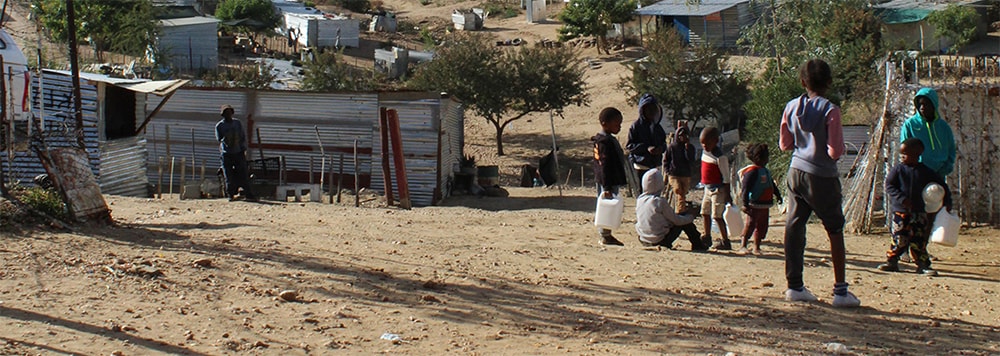
One of the informal settlements in Windhoek, capital of Namibia. Photo by Rachel Coomer/CDC.
The Centers for Disease Control and Prevention (CDC) established an office in Namibia in 2002 to focus on implementing HIV programs in regions with high HIV burden. CDC partners with the Namibia Ministry of Health and Social Services (MOHSS) to strengthen the capacity of Namibia’s healthcare workforce and systems to prevent, detect, and respond to public health threats. A primary focus for CDC and MOHSS is to control the HIV and tuberculosis (TB) epidemics through tailored strategies that prevent new infections, reduce deaths, and improve quality of life. CDC supports MOHSS through a multi-pronged approach that includes strengthening clinical and laboratory systems through the MOHSS Quality Management framework; supporting human resources for health systems to build and maintain an effective health workforce; and optimizing health information systems to ensure that data are available to inform clinical care and policy making.
Download Namibia Factsheet [PDF – 413 KB]
Global Health Security
Human resources for health, laboratory capacity building, tuberculosis (tb), health information systems.
- Success Stories
- At a Glance
- Top 10 Causes of Death
- Related Links
CDC Impact in Namibia
Countries that have strong and resilient public health systems can quickly prevent, detect, and respond to infectious disease threats before they become epidemics. CDC strengthens emergency preparedness, provides technical support for infectious disease outbreaks, and supports border health services. CDC is also assisting the establishment of a national Emergency Operations Center and National Institute of Public Health. CDC and MOHSS strengthen the national health system by increasing workforce capacity to detect and respond to outbreaks.
CDC is supporting partners to strengthen global health security policies and procedures so that Namibia has a strong framework in place to respond to disease outbreaks
Over the past 10 years, more than 220 participants have graduated from the Namibia Field Epidemiology and Laboratory Training Program (FELTP). Two cohorts graduated from FELTP-Frontline in 2022
CDC Namibia has supported a range of outbreak investigations , including: mpox , Crimean-Congo hemorrhagic fever , rabies among livestock with human exposures, anthrax in animals, cholera , typhoid , listeriosis , measles , scabies , hepatitis E , schistosomiasis , and H1N1 influenza
Namibia joined the International Association of National Public Health Institutes (NPHIs) in 2016. CDC provides ongoing support to establish an NPHI in Namibia
Namibia conducted a Threat and Hazard Identification and Risk Assessment evaluation in 2017, joined the Global Health Security Agenda in 2019 , and launched a National Action Plan for Health Security in December 2020
CDC supports human resources for health at the facility, district, regional, and national levels. CDC partners with the MOHSS to ensure that staff are in the right place to meet local needs and that mechanisms are in place for rapid recruitment, deployment, and ongoing human resources management systems.
CDC Namibia supports over 600 healthcare workers within the MOHSS. In one year, these staff provide more than 2 million hours of work that benefits local and global health security
In 2022, CDC conducted an emergency preparedness capacity assessment and helped train over 100 rapid responders in 4 regions
As a key implementer of the U.S. President’s Emergency Plan for AIDS Relief (PEPFAR), CDC works with Namibia to develop and implement sustainable, integrated, and high-impact HIV prevention, care, and treatment programs. CDC works with MOHSS to scale up national HIV and TB programs, including:
- HIV testing services such as index testing
- Prevention of mother-to-child transmission (PMTCT)
- Antiretroviral treatment (ART)— including introduction of the best HIV medicines and multi-month prescriptions— and treatment of opportunistic infections
- Pre-exposure prophylaxis for pregnant and breastfeeding women
- Cervical cancer screening and treatment
Namibia has nearly achieved HIV epidemic control and is focused on ensuring that all people, especially children and adolescents, receive client-centered prevention and care packages. CDC supports MOHSS to offer services in the community, which is more convenient for patients and reduces pressure at facilities. CDC also supports the broader healthcare needs of patients with HIV.
In 2022, Namibia almost surpassed the UNAIDS 95-95-95 goals and was estimated to be at 94-97-93. This means that 94% of people living with HIV know their status, 97% of people who know their status are on treatment, and 93% of people on treatment achieve viral load suppression
In June 2022, CDC Namibia supported the MOHSS to transition all eligible children and adolescents on ART in Namibia to a dolutegravir (DTG) based regimen, which is currently the best possible treatment for people living with HIV
The estimated number of people dying from HIV in Namibia is 3 times lower than in 2002
The estimated rate of new HIV infections in Namibia is 5 times lower than in 2002
CDC supported Namibia’s population-based HIV impact assessment ( NAMPHIA 2017 ), which provided critical direction for TB and HIV programmatic decisions
Global health security investments and decades of global partnership built a strong foundation in Namibia to respond to the COVID-19 pandemic. CDC’s history of supporting outbreak responses, implementing and evaluating HIV, TB, malaria, and polio programs, and preparing for influenza and other pandemic diseases were vital to the country’s COVID-19 response. CDC’s COVID-19 support in Namibia includes:
- Response and logistics coordination
- Enhancing diagnostic capacity
- Disease surveillance and case management
- Quarantine management
- Case investigation
- Infection prevention and control
- Risk communication
- Activities that promote vaccine uptake
CDC technical staff were involved in all of the major COVID-19 response pillars in Namibia. Technical staff supported development of over 40 standard operating procedures, guidelines, flyers and letters issued by three different Ministries
CDC supported the development and use of an electronic data system, dashboards, and other tools that provide access to critical COVID-19 data . As of October 2022, these data include information on more than 1 million tests, more than 166,000 confirmed cases, and more than 570,000 people who have been vaccinated against COVID-19
CDC trained over 25 staff from 8 laboratories in COVID-19 molecular biology techniques
CDC helped purchase critical laboratory equipment , including: COVID-19 test kits, 30 centrifuges, 15 vortex mixers, 12 biosafety cabinets, 10 refrigerators, 10 freezers, one ultra-cold freezer, sequencing equipment, testing supplies and accessory equipment, reagents, and thousands of personal protective equipment (11,000 face shields, and 3,000 nasal testing swabs)
CDC supported COVID-19 vaccine roll-out by training more than 300 healthcare providers and procuring an ultracold freezer
CDC partnered with the MOHSS to ensure that robust HIV and TB services continued throughout the pandemic
Strong laboratory systems and networks enable timely detection of emerging diseases and rapid response to public health threats. Effective systems and networks also provide critical health information and create safer handling and transportation of laboratory samples. CDC supports the MOHSS to strengthen the quality of the national laboratory system in Namibia. CDC provides technical and financial support to the Namibia Institute of Pathology (NIP) to ensure accurate testing services for TB, HIV, and other related conditions. CDC also works with NIP to ensure the quality of all HIV and TB testing across the country. During the COVID-19 pandemic, CDC supported the national COVID-19 testing system to design workflows, conduct trainings, and ensure biosafety in the laboratory at all times. CDC also supports the development of testing protocols and procedures for specific diseases as outbreaks occur.
With CDC support, the Namibia Institute of Pathology introduced laboratory innovations such as barcode printers and delivery of results via text message. Both innovations decrease the time it takes to get results back to patients and providers
Namibia conducts all of the country’s COVID-19 testing and quickly increased capacity from zero tests per day at the start of the pandemic to more than 2,500 per day
Early in the COVID-19 pandemic, Namibia’s testing laboratory had a backlog of over 10 days until test results were ready. With CDC support, test results are now reported within 24-72 hours after samples are received for testing
Namibia is estimated to have one of the highest TB burdens in the world. CDC partners with the MOHSS to protect healthcare workers and reduce the spread of TB through trainings and capacity-strengthening, especially related to use of particulate-filtering respirators. CDC supports comprehensive TB and HIV activities in Namibia, including:
- Improving and integrating services for people living with TB and HIV coinfections
- Addressing gaps in TB case-finding through improved screening processes and diagnostics
- Providing TB preventative treatment for all eligible people living with HIV
- Supporting TB infection control in healthcare facilities
- Scaling up contact tracing for all people who are exposed to someone with infectious TB
To improve diagnosis of TB, CDC helps procure TB laboratory tests and provides trainings to health care workers on how to identify the signs and symptoms of TB
CDC supported the Namibia Institute of Pathology (NIP) and MOHSS to use molecular testing instead of smear microscopy for TB diagnostic testing
CDC supported MOHSS to roll out a new urine test (TB-LAM) for TB diagnosis . Compared to other tests, TB-LAM is more effective in diagnosing TB among people living with HIV and saves lives by helping people start treatment sooner
CDC has supported MOHSS to launch a new three-month TB preventative treatment regimen , which reduces treatment time by half and makes it easier for patients to complete the regimen
CDC assists with a range of innovative and cost-effective strategies that enhance data collection, analysis, and health management and information systems. CDC provides technical and infrastructure support to the MOHSS to develop and maintain national client-level health information systems that include HIV testing, treatment, PMTCT, TB, and COVID-19 cases and vaccinations. CDC also supports the MOHSS with the national health information management system (District Health Information System or DHIS2), which collects aggregated data and produces summary reports for key indicators. CDC’s support helps ensure that MOHSS staff, from health facilities up to the national programs, have access to the critical information they need to inform decision-making.
CDC supports integration and interoperability of data systems to ensure that patient-level data is available and used for decision-making that leads to improved client outcomes
CDC supported an MOHSS delegation at the CDC Atlanta 2022 Intergovernmental Learning Exchange to Advance Data-Driven Decision Making (I-LEAD) workshop
Making Schools in Namibia Safer During the COVID-19 Pandemic l CDC
When borders are shut: Providing ART medicine to all patients during the COVID-19 pandemic | CDC
Treating TB During the Time of COVID-19 | CDC
Q&A with CDC Namibia Country Director Dr. Eric Dziuban | Blogs | CDC
An interview with Anita Beukes, Laboratory Advisor | Blogs | CDC
- 10 U.S. Assignees
- 39 Locally Employed
- Population: > 2.5 million
- Per capita income: $9,220
- Life expectancy: F 65 / M 51 years
- Infant mortality rate: 30/1,000 live births
Sources: World Bank 2021, Namibia; Population Reference Bureau 2021, Namibia
- Lower respiratory infections
- Ischemic heart disease
- Neonatal disorders
- Tuberculosis
- Diarrheal diseases
- Road injuries
- Chronic obstructive pulmonary disease (COPD)
Source: GBD Compare 2019, Namibia
Namibia | Travelers’ Health | CDC
Namibia Country Profile | Global HIV & TB | CDC
Publications: Namibia Articles All Issues | Emerging Infectious Diseases journal | CDC
Social Media:
- CDC Namibia | Facebook
- CDC Namibia | Twitter
Get CDC’s free global health newsletter each week! Enter your email address:
Exit Notification / Disclaimer Policy
- The Centers for Disease Control and Prevention (CDC) cannot attest to the accuracy of a non-federal website.
- Linking to a non-federal website does not constitute an endorsement by CDC or any of its employees of the sponsors or the information and products presented on the website.
- You will be subject to the destination website's privacy policy when you follow the link.
- CDC is not responsible for Section 508 compliance (accessibility) on other federal or private website.

- Civil Society
- Document Centre
Our Partners
Namibia partners.
- The Ministry of International Relations and Cooperation Promoting Namibia’s national interests internationally

- All member countries
- Our network:
- Commonwealth Education Online
- Commonwealth Governance Online
- Commonwealth Health Online
Windhoek Travel Essentials
Ideal duration: 1-2 days
Best Time: May - September
Planning a Trip? Ask Your Question
"Cosmopolitan Capital and African Heritage"
Windhoek tourism.
Windhoek, the capital city of Namibia, is a vibrant and diverse African destination. Located in the country’s Central Highlands, Windhoek impresses its visitors with its unique blend of African and European culture and history.
The main reason to visit Windhoek is to explore the city’s rich culture and history. From Independence Square, a symbol of the struggle for Namibian independence, to the city’s diverse museums, galleries, and monuments, there is no shortage of things to explore. The city also has a great selection of restaurants, bars, and nightlife, making it an ideal destination for those looking for an exciting night out. Key tourist spots and attractions in Windhoek include the Christuskirche, a beautiful 19th century Gothic-style church; the National Art Gallery of Namibia, which houses a diverse collection of artwork from Namibian and international artists; and the Alte Feste, the former German colonial headquarters. Other highlights include the National Botanic Garden of Namibia, a beautiful park where visitors can explore the diverse plants and wildlife of the region; the Windhoek Zoo, where visitors can observe over 200 species of wildlife; and the Windhoek Country Club, home to a stunning golf course. When it comes to activities, Windhoek has something to offer for everyone. Whether it’s taking a guided tour of the city’s many historical sites, or simply exploring the city on foot, there are plenty of ways to explore Windhoek. Other activities include visiting the nearby safari parks, taking a hot air balloon ride, or going on a game drive in search of the region’s many species of wildlife. When visiting Windhoek, it is important to remember that the city has a long history of racial segregation and discrimination. Though progress has been made in recent years, visitors should be aware that there
Top Hotels In Windhoek
9.2 (134 reviews)
₽ 56,224 onwards
9.0 (2247 reviews)
₽ 4,807 onwards
8.9 (959 reviews)
₽ 13,333 onwards
8.8 (511 reviews)
₽ 6,481 onwards
8.8 (264 reviews)
₽ 15,149 onwards
9.7 (47 reviews)
₽ 3,660 onwards
Nearby Places

Browse Package Collections
Nearby destinations for packages, windhoek photos.

+ 17 photos
Have a Question on Windhoek?

Windhoek Reviews

Similar Places

Get the best offers on Travel Packages
Compare package quotes from top travel agents
Compare upto 3 quotes for free
- India (+91)
*Final prices will be shared by our partner agents based on your requirements.
Log in to your account
Welcome to holidify.
Forget Password?
Share this page
- CONTENT FOR BUSINESS
- [email protected]
- Español
- Français
- Português
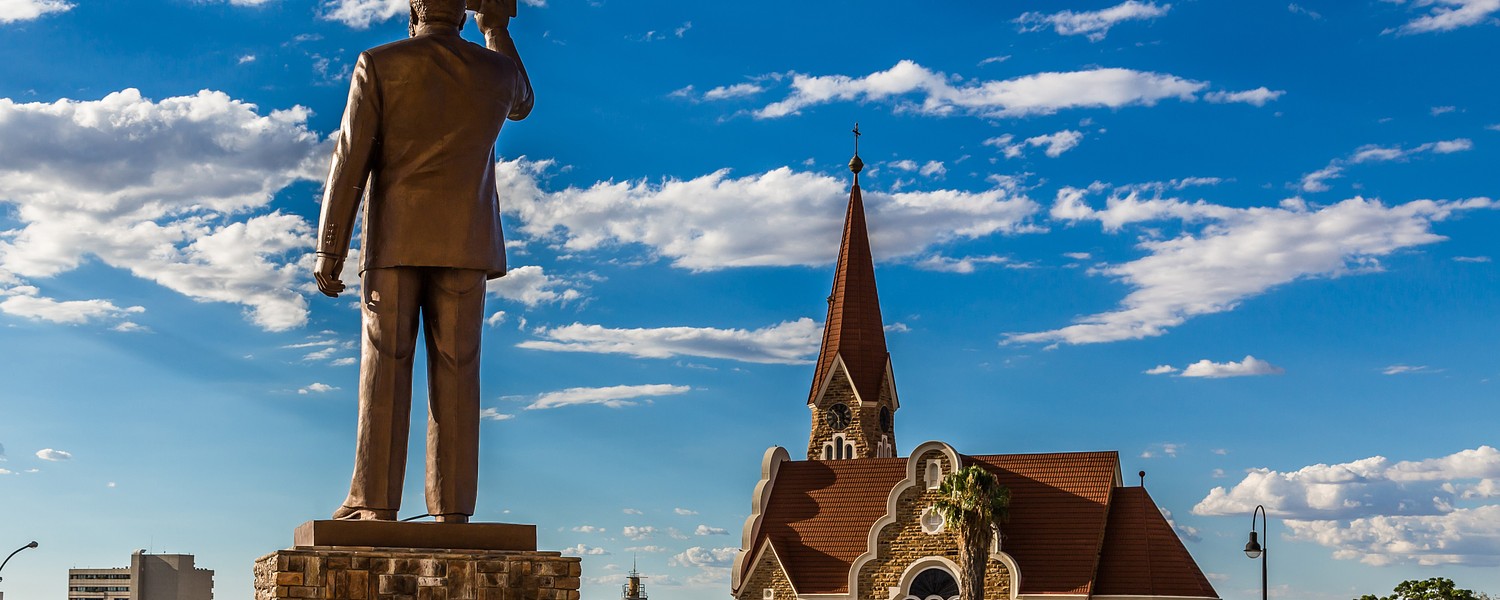
Our travel guides are free to read and explore online. If you want to get your own copy, the full travel guide for this destination is available to you offline* to bring along anywhere or print for your trip.
Limited time: €2
- View on map
- Do & See
- Restaurants
- Bars & Nightlife
- Tourist Information
Section in Windhoek Do & See Few come to Namibia and limit their stay to Windhoek alone, but most who do travel to the country choose to spend a day or two in the easy-going capital. Although attractions are admittedly scarce, there is just enough for a good couple of days with sightseeing and shopping. If you happen to have time on your hands and do not mind venturing out of the city centre, check out the recently inaugurated Heroes Acre (south of Windhoek, down B1), an expansive war memorial commemorating those involved in the Namibian liberation struggle. Read more
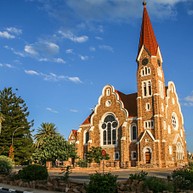
Christ Church
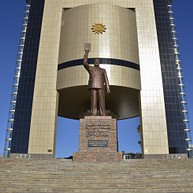
Independence Memorial Museum

Daan Viljoen Game Reserve
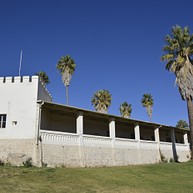
Trans-Namib Transport Museum
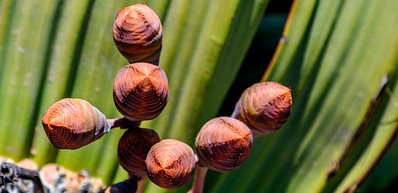
National Botanic Garden of Namibia

NamibRand Nature Reserve
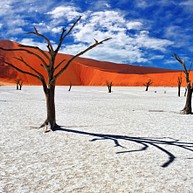
Namib-Naukluft National Park
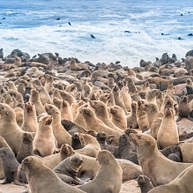
Skeleton Coast & Cape Cross
- Skip to main content
- Skip to site information
Language selection
Help us to improve our website. Take our survey !
Find a travel health clinic
It is recommended that you contact a doctor, nurse or health care provider, or visit a travel health clinic, preferably six weeks before you travel.
Travel health services are available in most communities or through your family doctor. One way to find a health care site that provides travel health services is through the Public Health Agency of Canada’s list of designated Yellow Fever Vaccination Centres.
Hotels near Mediclinic Private Hospital (Windhoek), Windhoek
Enter your dates and choose from 119 hotels and other places to stay, featured hotels near mediclinic private hospital (windhoek), star rating, review score.
See the latest prices and deals by choosing your dates. Choose dates
Eros Weg Family Flat
Windhoek (0.3 miles from Mediclinic Private Hospital (Windhoek))
Eros Weg Family Flat is located in Windhoek, just a 13-minute walk from Eros Shopping Centre and 1.3 miles from National Theatre Namibia.
House on Olof Palme
Windhoek (0.4 miles from Mediclinic Private Hospital (Windhoek))
Offering a year-round outdoor pool and views of the pool, House on Olof Palme is located in Windhoek. Free private parking is available on site.
Felsenblick Self-Catering
Windhoek (0.5 miles from Mediclinic Private Hospital (Windhoek))
Featuring a garden, Felsenblick Self-Catering provides accommodations in Windhoek. With garden views, this accommodation offers a terrace.
Safari Villa Boutique Hotel
Hotel in Windhoek (0.1 miles from Mediclinic Private Hospital (Windhoek))
Located in Windhoek, 1.2 miles from Eros Shopping Centre, Safari Villa Boutique Hotel has accommodations with an outdoor swimming pool, free private parking, a garden and a shared lounge.
Londiningi GuestHouse
Windhoek (0.2 miles from Mediclinic Private Hospital (Windhoek))
Londiningi GuestHouse in Windhoek provides accommodations with an outdoor swimming pool, a garden, and a bar. This guest house features air-conditioned accommodations with a patio and free Wifi.
Bryan's View
Windhoek (0.7 miles from Mediclinic Private Hospital (Windhoek))
Offering an outdoor pool, Bryan's View is located in Windhoek. Free WiFi and private parking are available on site. Each room at this guest house is air conditioned and features a flat-screen TV.
Research, refine, and make plans for your whole trip
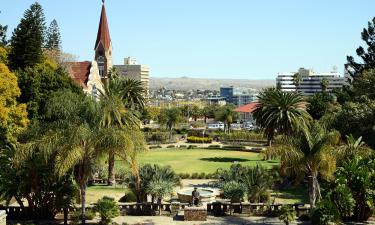
Stay in the know
Error: Please enter a valid email address.
Error: Oops! An error has occurred.
Thanks! We've sent you an email so you can confirm your subscription
List your property
- Mobile version
- Your account
- Make changes online to your booking
- Customer Service Help
- Booking.com for Business
- Places of interest
- Guest Houses
- Unique places to stay
- Discover monthly stays
- Unpacked: Travel articles
- Seasonal and holiday deals
- Traveller Review Awards
- Flight finder
- Restaurant reservations
- Booking.com for Travel Agents
- Coronavirus (COVID-19) FAQs
- About Booking.com
- Partner help
- Sustainability
- Press Center
- Safety Resource Center
- Investor relations
- Terms & Conditions
- Partner dispute
- How We Work
- Privacy & cookie statement
- MSA statement
- Corporate contact
- Content guidelines and reporting
Booking.com is part of Booking Holdings Inc., the world leader in online travel and related services.
Verified reviews from real guests.
We have more than 70 million property reviews, all from real, verified guests .
How does it work?
It starts with a booking.
The only way to leave a review is to first make a booking. That's how we know our reviews come from real guests who have stayed at the property.
Followed by a trip
When guests stay at the property, they check out how quiet the room is, how friendly the staff is, and more.
And finally, a review
After their trip, guests tell us about their stay. We check for naughty words and verify the authenticity of all guest reviews before adding them to our site.
If you booked through us and want to leave a review, please sign in first.
Check-in date
Check-out date
- Visit the University of Nebraska–Lincoln
- Apply to the University of Nebraska–Lincoln
- Give to the University of Nebraska–Lincoln
Search Form
Travel health.
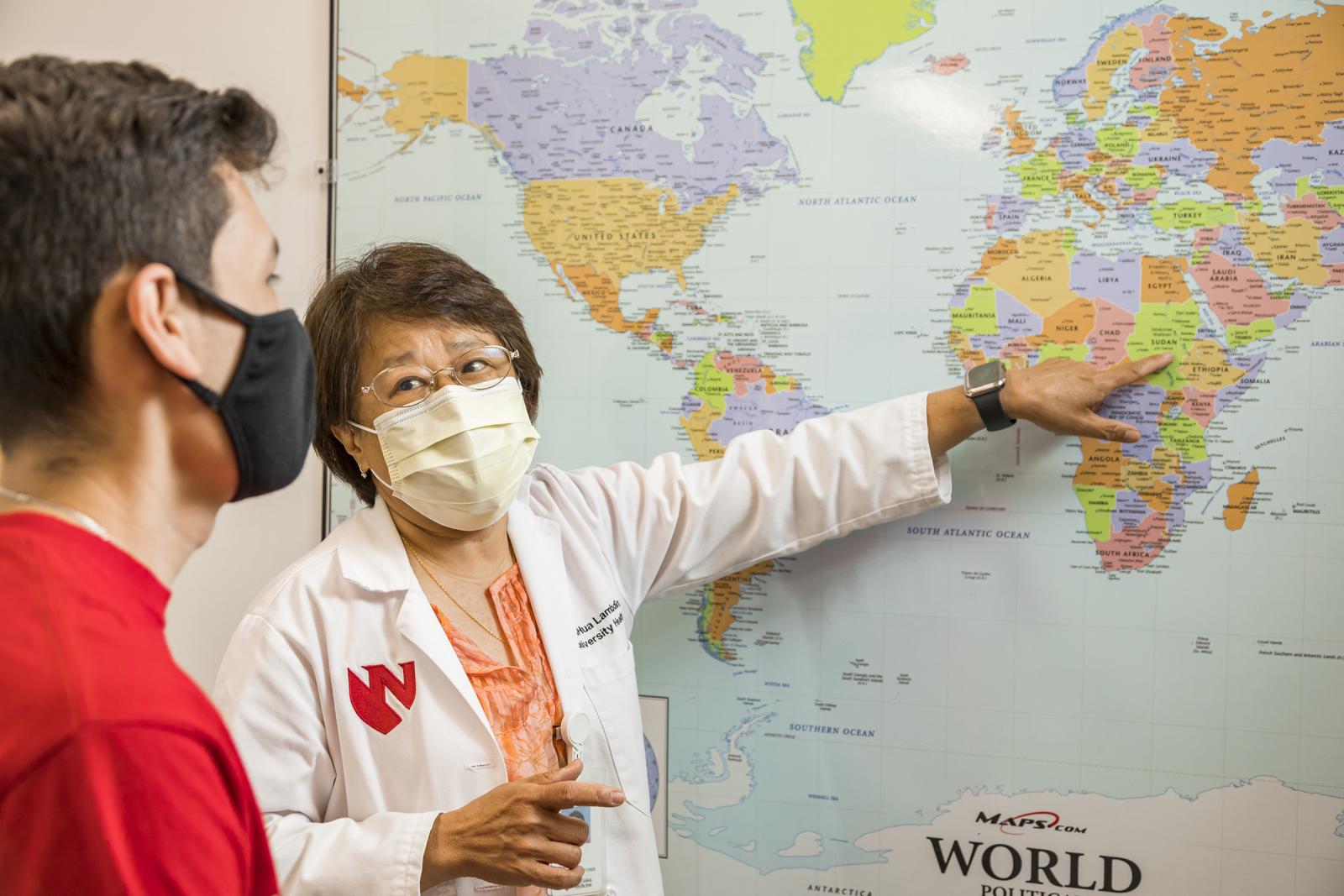
Hours of Service
Monday through Friday : 8 a.m. to 5 p.m.
Saturday and Sunday : Closed
New patients should bring a copy of their immunization record and the Travel Medical History Form . For study abroad program health clearance appointments, bring the printed requirements list found on MyWorld
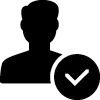
Patient Eligibility
- University of Nebraska students from all campuses
- UNL, Nebraska Medicine and UNMC employees and their dependents who are 19 years or older
- Community members
- Visiting scholars

Services Covered By Student Fees
- Five office visits with a Medical or Travel every July through June (immunizations, lab work and medications are not covered)
Let Us Help You Have a Safe and Enjoyable Trip
Nebraska Medicine health professionals certified in travel health are here to help you prepare for your upcoming trip, such as vacations, spring break trips, Education Abroad programs, faculty research trips and more.
Our staff provides individualized consultations where they will analyze your itinerary to make sure you receive all the immunizations you need and, when relevant, provide prescriptions for prophylaxis, which can be filled at the health center pharmacy . You will receive advice on up-to-date, country-specific travel advisories as well as general information on how to stay healthy while traveling (e.g., insect protection, traveler diarrhea and high altitude sickness prevention).
Appointments
The travel clinic is available to UNL students, faculty and staff and community members 8 a.m. to 5 p.m. Monday through Friday by appointment only. Appointments book quickly, so don’t delay. During times of high volume, it may take two to four weeks to obtain a travel appointment. We recommend scheduling two to three months before your anticipated departure date or sooner if you need a series of immunizations (please consult travel clinic provider). Call 402-472-5000 to schedule.
Students who pay student fees can receive five visits to the travel or medical clinic each year for no additional cost, but fees will apply for immunizations, labs and any procedures.All other visits will incur a charge. To determine how much your visit will cost, we recommend contacting your health insurance provider for coverage information. Patients are responsible for any charges not covered by insurance.
Click here to learn more about cost and insurance.
Important information for new patients
All new patients are required to bring a completed Travel Medical History Form and their previous immunization records and/or yellow international travel vaccination booklet to their first appointment. For Education Abroad program health clearance appointments, bring the printed requirements list found on MyWorld including the Education Abroad Confidential Health History Form and Health Clearance Form. Be prepared to discuss all your potential destination countries and to receive immunizations at the time of your visit.
Parking is available at meters along N 19th St and in our marked patient parking lot on the north side of the building. You will be ticketed for parking in other locations.
Yellow fever vaccine
The Travel Clinic is a designated yellow fever vaccination center —International Certificate of Vaccination yellow booklet.
The yellow fever vaccine is now available at the University Health Center.
Yellow fever is a required vaccine for travel to certain countries in South America and Africa. If you have previously had a yellow fever vaccine, you are not required to be re-vaccinated.
Common Immunizations
Vis (vaccine information statements).
- Chickenpox (Varicella)
- Hepatitis A
- Hepatitis B
- Hib - Haemophilus influenzae Type B)
- Human Papillomavirus - HPV
- Influenza Seasonal
- Japanese Encephalitis (JE)
- Meningococcal
- MMR – Rubeola
- MMR – Mumps
- MMR - Rubella (German Measles)
- Pneumococcal
- Respiratory syncytial virus (RSV)
- Shingles (Herpes Zoster)
- Tick-borne Encephalitis (TBE)
- Typhoid Fever
- Yellow Fever
VIS (Vaccine Information Statements) Other Languages
- Health and safety travel tips
- Mosquito bite prevention
Frequently Asked Questions
If you’ve traveled before, you may have these immunization recorded in a yellow international travel vaccination booklet. If you do not have this booklet, obtain your immunization records from your doctor’s office, county health department or high school/college.
If you are a UNL student experiencing a fever after returning from a country with malaria, diarrhea or skin rashes/lesions, or if you think you might have an infectious disease or other travel-related concern, call 402-472-5000 to make an appointment. Be prepared to discuss your concern so that the phone attendant can book an appointment with the appropriate service for your needs. If you are a faculty, staff or community member, please consult with your primary care provider.
- Namibia Tourism
- Namibia Hotels
- Namibia Bed and Breakfast
- Namibia Vacation Rentals
- Flights to Namibia
- Namibia Restaurants
- Things to Do in Namibia
- Namibia Travel Forum
- Namibia Photos
- All Namibia Hotels
- Namibia Hotel Deals
- Last Minute Hotels in Namibia
- Things to Do
- Restaurants
- Vacation Rentals
- Travel Stories
- Rental Cars
- Add a Place
- Travel Forum
- Travelers' Choice
- Help Center
Mosquitos in September? - Namibia Forum
- Africa
- Namibia
Mosquitos in September?
- United States Forums
- Europe Forums
- Canada Forums
- Asia Forums
- Central America Forums
- Africa Forums
- Caribbean Forums
- Mexico Forums
- South Pacific Forums
- South America Forums
- Middle East Forums
- Honeymoons and Romance
- Business Travel
- Train Travel
- Traveling With Disabilities
- Tripadvisor Support
- Solo Travel
- Bargain Travel
- Timeshares / Vacation Rentals
- Africa forums
- Namibia forum

Also, my doctor recommended Malarone for Etosha, but Sept. is the dry season? Is it necessary?
Thanks in advance for your advice.
10 replies to this topic
We were there in Sept 2021 and I don't remember hardly any mozzies. However, for malaria advice I think you should talk to your doctor or travel clinic - if you happen to be near some stagnant water, there MAY be mozzies carrying malaria. We decided not to take the risk and took malarone (generic equivalent, not the more expensive branded ones) but we spent some time in the Caprivi Strip which is wetter than the rest of Namibia (we even had 10 mins of rain!!!). We will do the same for Botswana/Zimbabwe next month 😃
If you see a mozzie in September (except in north-eastern Namibia), you will be luck...
Thanks for the info! We won't worry about repellent.
What about sunscreen? Any local brand recommendations?

I use insect repellent above Otjiwarango area as the malaria risk is very low, which means precautions (repellent, long sleeves) should be taken in dry season still. There are high numbers of people in Etosha in peak season so it is a remote possibility. Malaria is an awful awful thing- ask anyone whose had the African strain- and should be taken seriously. See chats on the http://4x4community.co.za which has much more expertise than TA. Deet is the most effective against the vector in Namibia (there is only one luckily).
Safe travels.
I totally agree with Ernst. I would be very surprised if anyone sees a mosquito in Etosha in September.
Better to be safe though and carry a repellent spray with you. The two popular loclly found brands are "peaceful sleep" and "tabard". Bothe come in an aerosol can ur a waxy stick that you apply to exposed body parts.

Hi! Any side effects from malaro e?
Hi - saw this message pop up, so thought I would respond to my own question now that we're back home :)
Zero mosquitoes encountered anywhere, except for Etosha, where there were maybe a couple during early evening? It was the only place we bothered with insect repellent or mosquito net. I ended up not starting the malarone until the Zambia portion of our trip, mostly due to an upset stomach that I didn't want to make worse. I've taken Malarone a bunch of times and never had any side effects, but of course every person reacts differently.

My UK doctor suggested Malarone for Caprivi strip, but not Etosha.
Wise to stick with normal precautions round Etosha though. Deet. Long sleeves. Netting.

I have had mosquitos in Etosha end of September.
- Zar payment transaction by card 8:10 pm
- Keetmanshoop to Windhoek: where to spend one night 1:06 pm
- Recommendation for Windhoek today
- Paying parking guys today
- Route advice - Kalkrand to Sossusvlei today
- Travel time from windhoek to sossusvlei yesterday
- 2 days between Etosha and Okonjima. What to do ? yesterday
- Driving time Windhoek to Etosha and park gates yesterday
- Route advise yesterday
- Driving: road condition, time, google, cell phone etc yesterday
- Driving in Nambia for 2 weeks - advice on fuel stops yesterday
- Self Drive trip To Namibia and Botswana yesterday
- Is card accepted everywhere? yesterday
- Two or three nights at Sossusvlei yesterday
- Namibia in December 11 replies
- Windhoek to Sossusvlei by car 5 replies
- Windhoek to Walvis Bay 5 replies
- self-drive Windhoek to Cape Town 6 replies
- Electrical Plugs 7 replies
- Henties Bay the Desert Rose Resort 4 replies
- Swakopmund to Walvis Bay 3 replies
- Sad News - Hobatere Lodge 7 replies
- Question about safety in Namibia 5 replies
- Avoid ASCO (National- Alamo) car hire in Windhoek 13 replies
Namibia Hotels and Places to Stay
- Driving in Namibia - Detailed information
- Car Hire in Namibia
- Excess Insurance for 4x4 Hire
- Sesriem, Sossusvlei & Namib Rand - Detailed Tourist Information
- Walvis Bay & Solitaire - Detailed Tourist Information
- Spitzkoppe - Detailed Tourist Information
- Etosha - Detailed Tourist Information
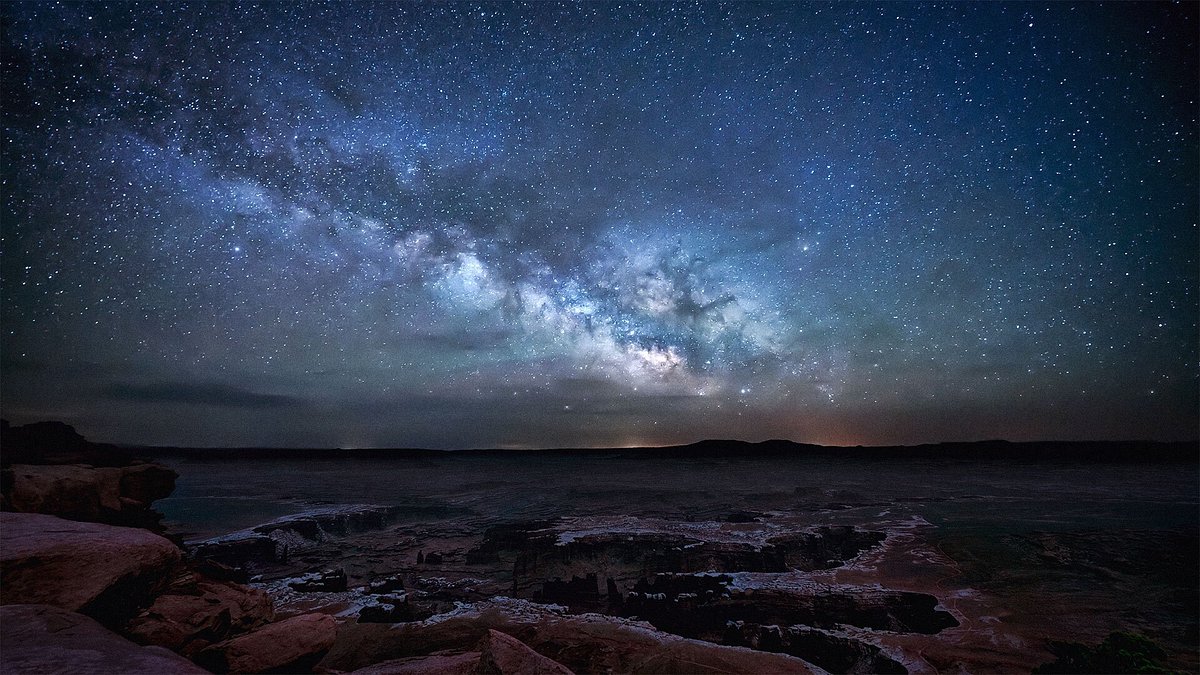
- Jump to Cookie Consent
Help us improve your website experience! Take a brief survey >>
Visit the COVID Information Center >>

- MyChart Login
- Find a Location
Travel medicine
When you’re traveling abroad, you want every aspect of your trip to go well. Unfortunately, each year as many as 25 percent of Americans who travel abroad experience some type of illness during their trip. On a typical two-week trip, travelers can lose an average of three days because of illness.
The Edward-Elmhurst Health travel medicine specialists can help you take proactive steps to stay healthy and make most of your experience. Contact our travel medicine specialists at least six weeks before your departure , and we’ll customize a plan that prepares you for every place on your itinerary.
What to expect at the travel medicine clinic
When you visit our travel medicine clinic, you’ll consult with one of our specialists about your trip. The discussion will cover:
- All the places you’re visiting, the purpose and timing of your travels, and how long you plan to stay
- Activities you’re planning on your trip, such as mountain climbing or mission work
- Your vaccination and medical history, including allergies
- Your current medications
Travel medicine tailored to your needs
Based on your consultation, we will recommend the appropriate vaccines and prescriptions for your trip. Recommendations will be customized to your unique needs. For example, you may need medication to limit altitude sickness during a climbing expedition. You’ll also learn how to plan for water and food safety, protect yourself from disease-carrying mosquitoes, and deal with traveler’s diarrhea and other common ailments.
We carefully consider the risks and benefits of vaccines and medicines and, in some cases, provide an explanatory waiver rather than a vaccination. This document explains the decision not to give a vaccine, typically due to a person's age, medical condition or current medications.
Vaccines and immunizations
The Edward-Elmhurst travel medicine clinic offers the following vaccines:
- Hepatitis A and B
- Japanese encephalitis
- Yellow Fever*
*CDC Certified Yellow Fever Immunization site.
Certain vaccinations may require more than one dose and/or a follow-up consultation.
Make an appointment six weeks in advance
Travel medicine consultations must be scheduled in advance. A 4-6 week lead time is strongly recommended for most vaccinations, as there may be a waiting period before the vaccine becomes effective. Payment is due at the time of service. Most insurance companies do not reimburse for this service.
Services offered at:
Edward Hospital Campus 100 Spalding, Suite 212 Naperville, IL 60540
To schedule an appointment, call 630-527-7299 .
Sign up for our newsletter
If you have reached this screen, your current device or browser is unable to access the full Edward-Elmhurst Health Web site.
To see the full site, please upgrade your browser to the most recent version of Safari, Chrome, Firefox or Internet Explorer. If you cannot upgrade your browser, you can remain on this site.
This website uses cookies that measure website usage and help us give you the best experience. By continuing to use this website, you consent to this website’s use of these cookies and you accept and agree to our Privacy Statement and Terms of Use .

IMAGES
COMMENTS
Dosing info - Hep B. Malaria. CDC recommends that travelers going to certain areas of Namibia take prescription medicine to prevent malaria. Depending on the medicine you take, you will need to start taking this medicine multiple days before your trip, as well as during and after your trip.
British High Commission Windhoek 116 Robert Mugabe Ave, P.O. Box 22202 Windhoek Windhoek Namibia Telephone: +264 (61) 274800 Emergency Phone: +264 (61) 274800 Fax: +264 (61) 228895 Email: [email protected]. Ready to start your next journey? Ring us up at or book online now!
Advice. Travellers'. Diarrhea Kits. Available. Namibia's sprawling, untouched landscapes teem with countless types of wildlife and animals. If anyone is looking to experience nature in truest form, then they don't need to look much further than Namibia. Etosha National Park is a popular destination in Namibia offering the chance to see ...
Find a COVID-19 testing clinic. CDC provides these links as a convenience to international travelers. CDC does not endorse, recommend, or favor any clinics on these lists, nor does the appearance of a clinic on these lists imply a guarantee of service quality. Page last reviewed: August 11, 2022.
Windhoek Main Police Station, phone: 61 209 4345; Swakopmund, phone: 64 405 558; Latest update. ... See your doctor or travel clinic to: have a basic health check-up; ask if your travel plans may affect your health; plan any vaccinations you need; Do this at least 8 weeks before you leave.
Windhoek, 9000 Postal Address: P O Box 9819, Windhoek, 9000 +264 61 433 1000 +264 61 22 9246 (Emergency Department) +264 61 22 0027 Contact. Pre-Admission Information. Online Pre-Admission Form. Printable Pre-Admission Form. Download Mediclinic Windhoek Pre-Admission & Hospitalisation Information.
The information on these pages should be used to research health risks and to inform the pre-travel consultation. Due to COVID-19, travel advice is subject to rapid change. ... Windhoek. 21 °C. Foreign travel advice. ... Clinic resources; Yellow Fever Vaccination Centre search (YFVC) Educational events; ICVP (Certificates)
Mediclinic Windhoek is based in the capital of Namibia, offers local and international patients a broad spectrum of professional medical services, including; professional consultations, quality medical care and well-equipped operating theatres staffed by highly trained and professional nursing, medical and other personnel. +264 61 433 1000 ...
Call us in Washington, D.C. at 1-888-407-4747 (toll-free in the United States and Canada) or 1-202-501-4444 (from all other countries) from 8:00 a.m. to 8:00 p.m., Eastern Standard Time, Monday through Friday (except U.S. federal holidays). See the State Department's travel website for the Worldwide Caution and Travel Advisories.
Windhoek Central Hospital 26 Andradiet Street Windhoek Namibia Telephone: 002-646-122-4270 09264-81128-3333 Contact:
COVID-19. Global health security investments and decades of global partnership built a strong foundation in Namibia to respond to the COVID-19 pandemic. CDC's history of supporting outbreak responses, implementing and evaluating HIV, TB, malaria, and polio programs, and preparing for influenza and other pandemic diseases were vital to the country's COVID-19 response.
Travel; Document Centre; Members; About us; You are in: Home > Africa > Namibia > Health and Medical > Windhoek Medi-Clinic « Back to Health and Medical. Windhoek Medi-Clinic : Address: Heliodoor Street Windhoek : Phone +264 6122 2687 : Fax +264 6122 0027 : Our Partners Namibia Partners.
Medicare: 1-800-MEDICARE ( 1-800-633-4227) PreferredOne: 763-847-4477 (in the Twin Cities); 800-997-1750 (outside the metro area) United Healthcare: 877-842-3210. Stay healthy during international travel with our team of travel medicine experts at HealthPartners and Park Nicollet. We offer travel vaccinations, health counseling and more.
Windhoek Tourism. Windhoek, the capital city of Namibia, is a vibrant and diverse African destination. Located in the country's Central Highlands, Windhoek impresses its visitors with its unique blend of African and European culture and history. The main reason to visit Windhoek is to explore the city's rich culture and history.
Trans-Namib Transport Museum. Windhoek's German-built train station contains a curious museum of old railway memorabilia and antiquated equipment, and still sports Fraktur typefaces on in- and outdoor signs. Original 19th century locomotives are displayed just outside the station. Read more.
Travel health services are available in most communities or through your family doctor. One way to find a health care site that provides travel health services is through the Public Health Agency of Canada's list of designated Yellow Fever Vaccination Centres. Government of Canada's official one-stop-shop for comprehensive international ...
Safari Villa Boutique Hotel. Hotel in Windhoek (0.1 miles from Mediclinic Private Hospital (Windhoek)) Located in Windhoek, 1.2 miles from Eros Shopping Centre, Safari Villa Boutique Hotel has accommodations with an outdoor swimming pool, free private parking, a garden and a shared lounge. Show more.
The Travel Clinic is a designated yellow fever vaccination center —International Certificate of Vaccination yellow booklet. The yellow fever vaccine is now available at the University Health Center. Yellow fever is a required vaccine for travel to certain countries in South America and Africa. If you have previously had a yellow fever vaccine ...
Answer 1 of 10: We'll be in Namibia this September, visiting Windhoek, Sossusvlei, Swakopmund, and Etosha. Is insect repellent necessary? ... Namibia Travel Forum; Search. Browse all 8,067 Namibia topics » ... for malaria advice I think you should talk to your doctor or travel clinic - if you happen to be near some stagnant water, there MAY be ...
The Edward-Elmhurst Health travel medicine specialists can help you take proactive steps to stay healthy and make most of your experience. Contact our travel medicine specialists at least six weeks before your departure, and we'll customize a plan that prepares you for every place on your itinerary. What to expect at the travel medicine clinic
Cape Windhoek Fertility Clinic 72 followers 1d Report this post ... Making mature, healthy sperm that can travel depends on many things. Problems can stop cells from growing into sperm. Problems ...
Call the Travel Clinic: 800-777-7904 (TTY 711) Complete the international travel immunization E-visit to consult with a travel health nurse about the required vaccinations for your specific trip. Georgia. Call Member Services 7a.m. to 7p.m., Monday through Friday: 888-865-5813 or 404-261-2590. TTY for the hearing/speech impaired: 800-255-0056 ...
In the four decades since, the clinic has taken in an estimated 50,000 participants, previously operating as a two-weekend seminar that culminated in a graduation flight to Seattle for lunch ...